Abstract: Many have written about the different ways people participate in authentic scientific research. However, some of the means used to engender public support in research may prove ultimately counterproductive. In this opinion piece we argue that science is not fun much of the time, and more importantly that fun in itself is not an end goal in engaging public audiences. To draw participation, we need to focus on motivation; which can include fun some of the time.
Continue ReadingAmerica is falling behind the rest of the world in science and math. There is therefore, a renewed emphasis on STEM subjects (Science, Technology, Engineering, and Math). But while mastery of STEM subjects is essential to the functioning of society, we’ve neglected some other areas that are at least as important, if not more so. But without an equal commitment to comprehensive civics education — an examination of subjects that touch on the relationships between people, government, the economy, and media — all the technical know-how in the world will be for naught. The author suggests a renewed focus on MESH education, which stands for Media Literacy, Ethics, Sociology, and History. Because if these are not given equal attention, we could end up with incredibly bright and technically proficient people who lack all capacity for democratic citizenship.
Continue Reading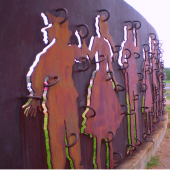
Abstract: In this article, I view Alvarez Armando’s “We the People” sculpture in Gallup, New Mexico, through the lens of Plato’s “Allegory of the Cave” and argue that although the message of the “We the People” art installation is to illustrate democracy and freedom, its staticity may contradict its intent and adds an additional layer to its interpretation. The “We the People” art sculpture invites interaction, but interaction, like in Plato’s “Allegory of the Cave,” is limited in scope and perception. My exploration comes with questions about the meaning of cave dwelling and enlightenment. What is the meaning of “We the People” when equality is not something every citizen can take for granted? Are we then an enlightened society that think we have gained exit from cave dwelling when freedom and a particular interpretation of democracy is not designed for everyone?
Continue Reading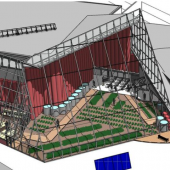
Abstract: The new educational revolution of Educating for Sustainability needs to be taught in a new, revolutionary teaching space; a teaching bioshelter. Drawing on the five ecological principles of the Center for Ecoliteracy, this new teaching space should reflect ecocentric design principles, rather than the previous anthropocentric industrial designs of our current school and college classrooms and campuses. A solar-powered, living classroom, a system of systems, such as a teaching bioshelter, opens new educational horizons by providing continuously available and hands-on learning environments not currently available to the Educating for Sustainability (EfS) curriculum. Fortunately, the architectural and technical design work for these kinds of spaces was pioneered nearly 50 years ago by numerous cutting-edge research groups, such as the New Alchemy Institute. It is suggested that these two ecological flows, of design and education, be joined to enhance and expand the mission of Educating for Sustainability.
Continue ReadingAbstract: Throughout 2016 and 2017 more than 300 Indigenous nations from around the globe united on the plains of North Dakota, where Standing Rock affinity camps provided space for native prophecy and ceremony to play out in ways meaningful to our modern times. Standing Rock protection actions made clear to all what we’ve known for centuries: Indigenous peoples’ relationship to the natural world provides a powerful antidote to the prevailing madness that insists nature and people are expendable as long as money is being made. Within our own Rotinonhsyón:ni (Iroquois) nations the act of gratitude is at the heart of our key ceremony that connects us to our Earth as it dissipates this violent culture.
Continue Reading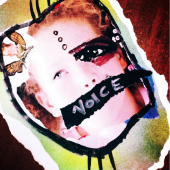
The field of Arts Education is rich in Data. Where qualitative studies fall short when it comes to influencing wide-spread policy decisions, the author calls Educational Agencies, Arts Educators, Community Arts Organizations, and Teaching Artists to ‘reframe’ their communication findings to positively influence sustainability and increased access to the field. Arts Education Practioners and advocates must increase their education policy literacy to transform into effective agents of change.
Continue Reading
Abstract: The question is raised about the nature of transformative change with respect to sustainability in higher education. In particular, should this change be reserved for senior administration? Or alternatively, should faculty and staff as the “institutional middle” of higher education be considered as best suited to lead sustainability on campus, and further, in partnership with stakeholders and others with interests in advancing sustainability within wider society. In this respect, Regional Centres of Expertise (RCEs), established by the United Nations’ University (UNU) are considered as a way toward transformational change in higher education by bridging the gap between higher education and multiple stakeholders with interests in sustainability. Complexity theory, and particularly the notion of complex adaptive systems (CAS), is applied toward an understanding of RCEs as a venue for sustainability leadership in higher education.
Continue Reading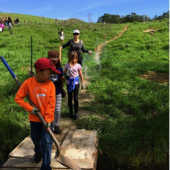
Future casting for us begins with going back — to the real basics, to understanding our place and the people who sustained themselves here for hundreds of years, engaging in real-world problem solving in pursuit of “the right kind of change at the right time.”
Continue Reading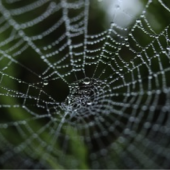
In our state of acute global crisis, we urgently need new leaders. In this short essay, I would like to sketch out my vision of such a new kind of leadership.
Continue Reading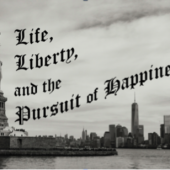
Life, Liberty and the Pursuit of Happiness: Reframing our Goals for Education
Continue Reading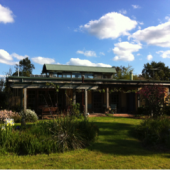
Wheeler JSE March 2017_Future Casting Issue PDF Abstract: Theories of sustainable architecture that address sexual difference are rare in an architectural context, whether in the United States or Europe, and this paper proposes a critical perspective on architectural design using sustainable schools as an example and adopting the question of sexual difference. Informed by the […]
Continue Reading
Abstract: Inspired by the entanglements of the Cosmos, this essay is a response to the JSE special call for papers on future casting sustainability education. The author’s approach reflects an integrated view of humans, moving beyond Anthropocene, capitalism, and Donald Trump to the idea of the Chthulucene, an era of reciprocity amongst human and more-than-human. In challenging times, such as this, sustainability education can look towards the future through hopeful pedagogies of interconnection through reciprocity, storytelling, and embracing the bio-cultural diversity of Earth.
Continue Reading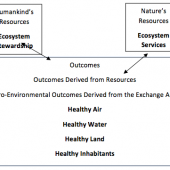
Abstract: In this paper we compare and contrast the Theory of Planned Behavior (Ajzen, 1985) with Social Exchange Theory (Homans, 1958) as conceptual foundations for eliciting pro-environmental behavior. We reason that Social Exchange Theory provides the better orientation because of its metaphorical power in casting humankind as being in a reciprocal relationship with nature rather than being in a superior position over nature. We illustrate our thinking by discussing ecosystem services (Melillo & Sala, 2008) as nature’s contribution to humankind in return for humankind’s responsible environmental stewardship.
Continue ReadingAbstract: This thought piece proposes the adoption of a new “3 Rs” to inform a climate-responsive environmental and sustainability education (CRESE): reclamation, resilience, and regeneration. As a changing climate becomes the larger campus of our learning, denial and top-down emergency preparedness both prove to be insufficient. We are invited into a deeper approach. Reclamation and resilience fold in (1) the saving of enduring biocultural lifeways and patterns and (2) the dynamic flux-states of panarchic socioecological resilience models. These two partner with (3) regeneration: context-responsive social collaborations; eco-socially-embedded capacity building systems; and the promise of regenerative design. These three approaches allow us to re-envision educational systems and encounters that are proactive rather than only reactive or responsive in metabolizing persistent climatic volatility. These three approaches – reclamation, resilience, and regeneration – echo the three approaches to climate change that Pelling has suggested (2009) – mitigation, adaptation, and transformation. Note, however, unlike Pelling’s model, these approaches are conceived as simultaneously requisite literacies and movements rather than as competing. Reclamation, resilience, and regeneration represent ever-more-complex types of capacities and support capacity building aimed together toward life-supportive, dynamic, complex systems transformations. Environmental and sustainability education that fosters skills of reclamation includes preservation, conservation, recording, and the establishment of libraries and sanctuaries of exemplar systems. Environmental and sustainability education (ESE) for resilience includes network extension and adaptive capacity building. ESE for regeneration nurtures emergent complex systems metacognitions, creativities, and transformative, transgressive social approaches that are connective, disruptive, and innovative and model and embody complex emergence. Regenerative ESE fosters skills to facilitate catalysis of emergent regeneration, self-organization, and transformation into more complex living systems. All of these position embedded learners in pro-active, systems-intensive embodiments of the types of living networks that foster survival, flexibility, thriving, and phase-change during our entry into a time of consistent climate turbulence.
Continue Reading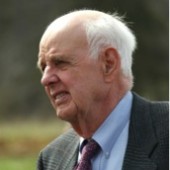
Schreck JSE Nov 2015 Hope Issue PDF Abstract: This essay chronicles three experiences I had within a matter of days that clarified for me how easily the good sense of Wendell Berry’s thinking is drowned out by the reductive presuppositions of modern industrialism and how necessary his thinking is for our hope of survival. With […]
Continue Reading
Undergraduate energy education is often offered from a specific perspective, such as engineering, sustainability, policy, or economics. This essay argues that undergraduate programs in energy should be explicitly interdisciplinary, because issues surrounding energy production, transmission, and use have multiple perspectives. Challenges to creating interdisciplinary energy programs include often-compartmentalized nature of colleges and universities, and employment prospects for broadly-educated graduates that may not be clear. Strategies for overcoming those issues are proposed, but others remain to be developed by leaders in undergraduate energy education.
Continue Reading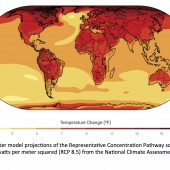
Energy education, vital though it is, remains incomplete if it doesn’t explicitly address the impacts of human activities, specifically the combustion of buried solar energy/fossil fuels, on the environment in general and climate system in particular. Projections based on current emission trends indicate a likely increase of the radiative forcing of energy in the Earth system from around three waters per meter squared today to over eight by the year 2100, substantially heating the planet in the process. Efforts to avoid or minimize the connection between human energy consumption and changing climate amount to a form of science denial through omission. In order to address the causes, effects, and risks of climate change and appreciate the range of options to minimize negative impacts and maximize resilience, energy and climate literacy efforts should be combined and ideally infused throughout the curriculum.
Continue Reading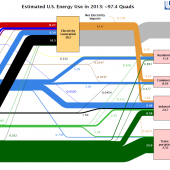
Energy services undergird all modern, industrial societies, yet economies based on fossil fuels are not sustainable. Insecurity of supply, particularly of oil, has sparked major geopolitical tensions and warfare. Pollution from use of fossil fuels and other energy sources has damaged local, regional, and global health. Greenhouse gases from fossil fuels have triggered concerns about the earth’s climate. Educational institutions are responding only slowly to these existential threats. This paper addresses the challenges facing students, faculty, and administrators as institutions move from simply providing technical education on the respective components of the energy industries to a more comprehensive program that also addresses the environmental, political, economic, cultural, and ethical contexts of energy literacy. Students at most institutions lack courses and programs outside of engineering and physical science. Only 8 percent of 1638 institutions have systematic, broad-based energy studies. The U.S. Department of Energy has supported initial efforts to develop this field. Development includes helping students move from energy studies to employment. Nevertheless, student interest is high. Faculty teaching sustainable energy have generally self-taught, and faculty employment opportunities in energy studies seldom exist. A faulty member delivering energy studies generally lacks a community of supporting peers. Those in this interdisciplinary field may fear the effort will not be rewarded by the institution. Nevertheless the intellectual rewards from developing energy studies are significant and motivating. Administrators face questions of balancing competing claims for institutional resources and face criticism from internal and external constituencies. In addition, they must guide the institution to promoting, enabling, and rewarding interdisciplinary work. Development of energy studies, however, positions the institution for better internal operations and for meeting critical societal needs. We conclude that energy education is both easy and hard, but it can and must be done.
Continue Reading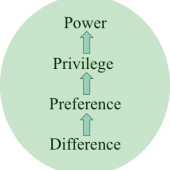
This paper explores the intrinsic but often weakly developed links between sustainability and issues of diversity, power, and privilege. It offers a systems-oriented conceptual framework for exploring and understanding how issues of diversity, power and privilege operate in social-ecological systems. This framework can be used as a learning tool with a wide array of audiences (higher education, organizational development, adult learners) and educational contexts (including but not limited to sustainability education programming).
Continue ReadingThe “Whole Earth Catalog” (1968-1972) featured a collection of creative ideas, articles, and durable, practical tools promoted from a utilitarian, environmentally conscious, and intellectual perspective. The wisdom inherent in the catalog may be of value to education today, as we seek innovative, timeless, and empowering technologies to promote sustained learning for all. This purpose of this article is to position the discussion of sustainable educational technology tools for 21st Century education within the context of the “Whole Earth” standards: 1) High quality at a reasonable cost, 2) Easily accessible, 3) Useful and relevant to independent or self education, and 4) Capable of launching a cascade of new opportunities.
Continue ReadingThe United States along with many other nations actively support the United Nations agenda to educate the next generation about sustainability. Library and information science (LIS) educators may support this effort by incorporating sustainability concepts into the LIS curriculum. While multiple alternatives exist for this goal, this paper argues and provides ideas integrating sustainability into a course focusing on management, offered, and frequently required, by most American Library Association accredited LIS programs. Discussion explains the meaning of sustainability; the international agenda surrounding it; why LIS programs need to help further the sustainability agenda; and, alternatives for incorporating sustainability into the LIS curriculum.
Continue Reading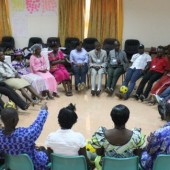
Recent systematic studies of the environmental movement in Ghana have revealed an apparent disconnect between environmentally focused civil society organizations and local academia. This disconnect has implications on both the study of the social dimension of environmental issues and the lack of academic literature on the subject. It is my opinion that the bridging of this gap has potential benefits for both civil society and the development of environmental social science.
Continue Reading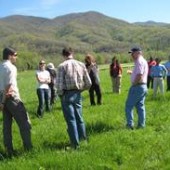
Sustainability Education is intended to provide learning, training, and practical experience, in both formal and non-formal settings, that fosters personal development, community involvement, and action for change in our human and natural worlds. Grounded in our experience of the world, Sustainability Education must mirror both the patterns present in our natural environment and the conditions present in our human society with the intention of preparing us for uncertain and rapidly transforming world conditions. Nature is the source of our identity as living beings and society the medium for expressing this. The conditions and needs for our survivability as a species and society will change depending on circumstances and through events that may be outside our control. Our success will depend upon our ability to respond in ways that value personal initiative, responsibility, creativity, commitment, and collaboration with others.
Continue Reading
Project-based community service learning increases the effectiveness of sustainability education and demonstrates the importance of providing children with opportunities to be healthy, happy and eco-literate global citizens. At Wright State University, as students learned environmental and socio-economic content, they became informed citizens who were empowered as local change agents. Insights from these case studies illustrate how we can engage college students to foster skills as informed decision-makers and engaged future teachers. Examples of curricular models are proposed for educators and students to effectively address environmental dilemmas by integrating scientific content knowledge with civic engagement to best prepare sustainably literate citizens.
Continue Reading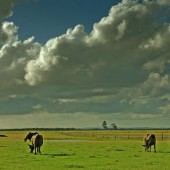
The human capacity for scientific thinking is an innate one that coexists with our ability to intuit, believe, and invent. In crafting engaging narratives that urge our readers or students to think and act rationally on behalf of our imperiled biosphere, writers who are not scientists should take care not to sustain negative stereotypes of science and scientists in their commentary, even if some of our greatest storytellers have done so.
Continue Reading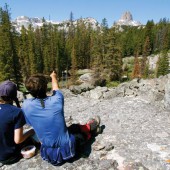
Minimum impact camping is a focus of most wilderness programs, but what example are we setting for our students before we get to the backcountry? In the past eight years NOLS has increased its focus on leading and teaching front-country sustainability by example, in addition to Leave No Trace practices taught in wilderness classrooms. This article explores some of the strategies, challenges, and successes in bringing sustainability to NOLS’ front-country operations.
Continue Reading
Environmental education (EE) strives to strengthen the ecological literacy of individuals and society. Guiding individuals along their own journey toward a deeper ecological literacy should be a central tenet of any EE program, and at least a complementary piece of programs in other closely related fields like experiential and adventure education, sustainability education, ecotourism, the natural sciences, conservation biology, public lands advocacy, wilderness-based therapy, ecopsychology and human rights and social justice. Regardless of their background, expertise, or actual job title, environmental educators should consider themselves key players in guiding individuals along their personal journey towards a deeper ecological literacy.
Continue Reading
The United States agriculture sector faces a looming labor shortfall. Today’s farm workforce is demographically aging, and as fossil fuel inputs decline the need for human inputs will only increase. The problem is particularly stark for seasonal farm labor, which is poorly compensated, operates on an erratic schedule, uproots one from community, and offers little or no opportunity for advancement. Who will bring in the harvest? In this essay, Brent Ranalli argues for the creation of a voluntary national service program to engage youth in seasonal agricultural work. Such a program would bridge the labor gap with a segment of the workforce that is fit for the task. It would also provide educational opportunities and a stepping stone to careers in farming and allied fields, and restore dignity to an indispensable form of labor.
Continue Reading
In this inspiring tale, Dan Garvey makes the case for the essential role of experience in showing the truth. He argues that it is easy to use secondary experience, through words, images and other media, to convince people of almost anything. But only through direct experience do we arrive at the ability to distinguish real truths.
Continue Reading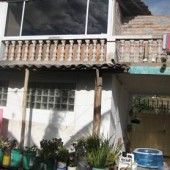
Rick Medrick cogently makes the argument that sustainability education IS experiential education!
Continue Reading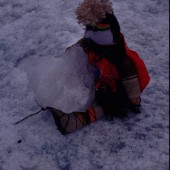
The high Andean Incan mummies represent an astounding feat of cultural preservation that reveals much about the peoples who left them, and their discovery is a tribute to the valor of the modern-day high-altitude archaeologists who have recovered, studied and preserved them. The intricate and delicate interconnectedness of the mummies, the modern cultural practices that descend from their original cultures, and the effect of climate change on the status of high altitude ice bring broad-scale lessons to those interested in the environmental and cultural landscapes of sustainability.
Continue Reading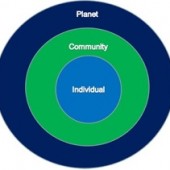
To most individuals, sustainability means environmentalism. This unfortunate approach to the current global crisis has ignored a more realistic systems approach, that sustainability includes social, cultural, economic, individual, and technical components. Even more tragic is our inability to align our very admirable values related to sustainability with our demonstrated and often
unenlightened self-interest and partisan selfishness, for it is individual behavior that creates the foundation for action in all other contexts in sustainability and potentially guides our ability to work with one another to make life-affirming decisions. This paper addresses the tragic gap between what we profess to value and the collective behaviors we demonstrate.
Continue Reading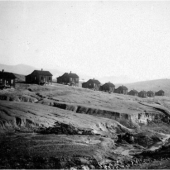
Carol Harden elegantly lays out, in broadest terms, from an environmental, cultural, social, political, economic and historical perspective, the essential confluence between geography as a discipline and sustainability as a concept. And then, in the face of the inevitability of change, she provides such a succinct metaphor for pursuing sustainability—just dance!
Carol Harden, elegantemente establece, en términos más amplios, desde una perspectiva ambiental, cultural, social, política, económica e histórica, la confluencia esencial entre la geografía como una disciplina y la sostenibilidad como un concepto. Y luego, en la faz de la inevitabilidad del cambio, ella ofrece una metáfora concisa para la persecucion de la sostenibilidad –Solo Baila!
Continue Reading
In a very cohesive and convincing argument, Randall Amster asks us to look at the other side of the well-worn coin that links environmental degradation and resource despoliation to conflict and war. Instead, argues Amster, conflict zones have been shown to be appropriate sites for the creation of peace parks and other similar initiatives, where they can be turned into regions of enhanced sustainability—in every sense of the word, including environmental, social, and economic.
Continue Reading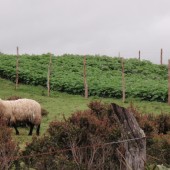
In this interesting comparison of sustainability in very different geographic and cultural settings—Long Island, New York versus the Chiloé archipelago, Chile—Vercoe and Brinkmann suggest that the societal framework for sustainability requires very different educational efforts. Their in-depth analysis of how these societal frameworks are almost diametrically opposed opens us to understanding how important geography is to the way we formulate our educational goals and systems.
Continue Reading
Jenny Finn reminds us that we all carry a full geography of internal landscapes, embodied in the simple act of breathing. As we consider the deep and complex issues that entering learning about sustainability in the outer world, is it not essential, she asks, that we connect, profoundly through each breath we take, with those internal landscapes?
Continue Reading
In this deeply cohesive and fundamentally geographic argument, Helena Norberg-Hodge brings an impressive array of sustainability issues under a single guiding rubric for educating and changing society—the need for a shift from globalised systems to local practice. While every point in her argument is backed with interesting details—including her fascinating experiences with the Himalayan Ladakhi people—she is consistent in bringing us back to valuing localisation and yet measured in her prescription which calls for gradual shifts, not radical and potentially harmful jumps, towards localisation.
Continue Reading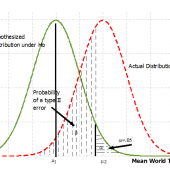
Dave Tomkins and Panagiotis Tsigaris focus their fine analytical stats skills on how to not to make the wrong kind of error…yes, that should be the right logic…regarding global warming. They elegantly lay out the math behind what we all know intuitively…nothing is to be lost from taking precautions regarding global warming, or avoiding Type II statistical error, which comes, not from assuming that humans caused global warming, even when we didn’t, but rather being unable to prove that humans cause global warming, when in fact we are causing it. They present the statistics in the context of a course case study and make it clear that we have no reason to wait on the data since the potential for this type of error is already with us and the actions to be taken are probably beneficial in other areas as well.
Continue Reading
Timothy Clayton looks at the internal workings of NPO’s (New Paradigm Organizations) to see how they might respond to the experiences of operating in a world structured by capitalism and traditional business practices. His insights produce an impressive and thoughtful list of ways in which some NPO’s, despite a flashy mission statement, might not practice what they preach, and can fall into traditional modes of operation.
This essay explores the challenges facing organizations intent on fostering peace, justice, and sustainability when incorporating traditional business practices into their operational modeling. The implications of these practices on internal organizational community conditions are examined, as are the possible impacts on mission-intended transformational capacities.
Continue Reading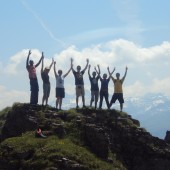
The generic definition of sustainable development involves using resources to meet current needs without forfeiting those of future generations. Though this definition has been criticized for being vague and vulnerable to misinterpretation, it has evolved into a paradigm that confronts the way we exist, including how we educate. I became personally acquainted with the benefits […]
Continue Reading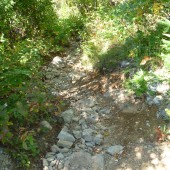
Introduction – The Human Factor When discussing “a sustainable future” most writers expect we will be using “renewable energy”, driving more efficient cars and be far more efficient in our use of resources. Those are items they recognize will have to change, (a good step) but it appears they expect the rest of life to […]
Continue Reading
In this clarion call for broad-based change in the way buildings are designed and built and occupied, Papesch and his colleagues bring attention to the broad swaths of society that are involved in this fundamental aspect of our daily lives. While bringing into play diverse groups of lay people and professionals, from poets to engineers, with a focus on architects and designers, they call for changes at every level, from the development of a Green Mindset among the population at large, to local governmental code changes to, as they argue most importantly, fundamental changes in design curricula that lead to the primacy of an interdisciplinary approach to climate change mitigation in building design.
Continue Reading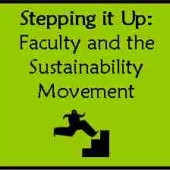
The students are ramping up sustainability as they dial down consumption and their environmental impact. As faculty, we are role models, and it’s time to step up and join the student body in the sustainability movement.
Continue Reading
In this broad overview of where sustainability curricula in higher education currently stands and where it might go, Paul Rowland covers the bases of how the varied and diverse institutions of higher learning are integrating or incorporating sustainability ideas. He concludes that, while currently standing outside the status quo, sustainability proponents and their ideas are increasingly accepted and should, ultimately, hope to become part of the cultural norm. He compares this process to what has occurred with diversity studies and technology studies.
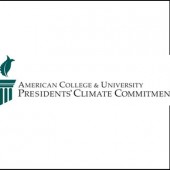
Anthony Cortese and Richard Cook’s clarion call for colleges to join the Presidents’ Climate Commitment lays out the stakes in no uncertain terms. They succinctly define what sustainability education really means in terms of every-day concrete changes for which every institution of higher learning should strive.
Continue Reading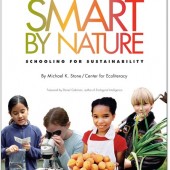
In this inspiring essay, Capra and Stone take us beyond the trite use of the word “sustainability” to an operational way of applying it in the educational setting. They outline four universal principles that should guide sustainability education, each with a profound implication for how learning occurs. They then show how the principles can be applied through a “curriculum that is anywhere learning occurs,” including lunchtime in the cafeteria and the design of the school campus. Their book Smart by Nature: Schooling for Sustainability expounds on the principles and learning-anywhere ideas laid out in brief here.
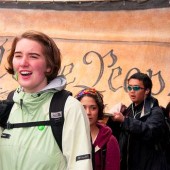
Riki Ott uses “ultimate civics” to inspire students to take action and make a change. Here, she puts forth the foundation for her curriculum that brings students out of the classroom and into the political arena, with the goal of eliminating our addiction to petroleum.
Continue Reading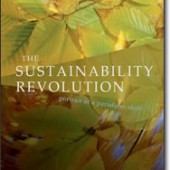
In this short succinct and insightful piece, Andres Edwards elegantly pushes for moving beyond “green” economics into a solution-based approach to sustainability issues. He calls for a view that puts humans and their economics squarely back into nature in a way that will lead to “reliable prosperity” through “SPIRALS” initiatives that are: Scalable, Place-based, Intergenerational, Resilient, Accessible, Life-affirming, and involving Self-care
Continue Reading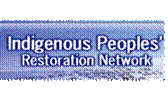
In this deeply articulate analysis, Dennis Martinez argues that Traditional Ecological Knowledge (TEK) of indigenous communities can be complementary to Western science, but“ bridging” or “integration” with Western Science will inevitably lead to second-rate status for TEK. The unique and powerful, place-based and ancient, traditional ways of knowing are based on the same fundamental human ways of analyzing the natural world. But the language used to conduct, express and translate indigenous understanding is in danger of loss to oppression and assimilation.
Continue Reading
Whoever would study medicine aright must learn of the following subjects. First he must consider the effect of the seasons of the year and the differences between them. Secondly he must study the warm and the cold winds, both those which are in common to every country and those peculiar to a particular locality. Lastly, […]
Continue Reading